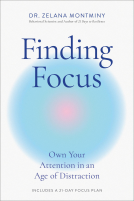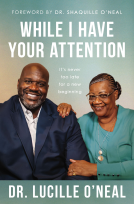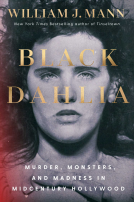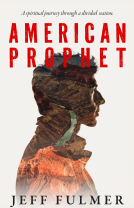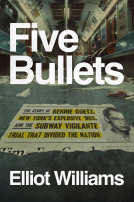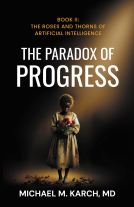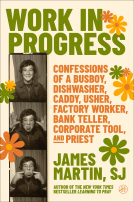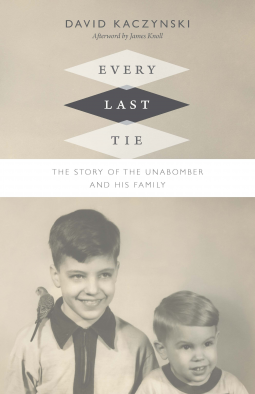
Every Last Tie
The Story of the Unabomber and His Family
by David Kaczynski
This title was previously available on NetGalley and is now archived.
Send NetGalley books directly to your Kindle or Kindle app
1
To read on a Kindle or Kindle app, please add kindle@netgalley.com as an approved email address to receive files in your Amazon account. Click here for step-by-step instructions.
2
Also find your Kindle email address within your Amazon account, and enter it here.
Pub Date Jan 29 2016 | Archive Date Jan 15 2016
Duke University Press | Duke University Press Books
Description
Every Last Tie is David's highly personal and powerful memoir of his family, as well as a meditation on the possibilities for reconciliation and maintaining family bonds. Seen through David's eyes, Ted was a brilliant, yet troubled, young mathematician and a loving older brother. Their parents were supportive, and emphasized to their sons the importance of education and empathy. But as Ted grew older he became more and more withdrawn, his behavior became increasingly erratic, and he often sent angry letters to his family from his isolated cabin in rural Montana.
During Ted's trial David worked hard to save Ted from the death penalty, and since then he has been a leading activist in the anti-death penalty movement. The book concludes with an afterword by psychiatry professor and forensic psychiatrist James Knoll, who discusses the current challenges facing the mental health system in the United States as well as the link between mental illness and violence.
Advance Praise
Available Editions
| EDITION | Other Format |
| ISBN | 9780822359807 |
| PRICE | $19.95 (USD) |
Average rating from 26 members
Featured Reviews
 Mike M, Media/Journalist
Mike M, Media/Journalist
This book is phenomenal. I had a terrible time tearing myself away from it. You could feel the pain in the author's heart as he talked about his family and especially his brother. I wish the author nothing but the best.
 Amy B, Librarian
Amy B, Librarian
Over the course of 17 years, a domestic terrorist code-named "The Unabomber" targeted corporate executives and academics by sending them homemade letter-bombs that would detonate upon opening. Twenty-three people were injured, and three were killed. The FBI's investigation was going nowhere, until a social worker named David Kaczynski provided a tip that the Unabomber could possibly be his estranged older brother Ted, a former college mathematics professor who had retreated from the world to live in a remote cabin in the wilds of Montana. David Kaczynski will forever be known as "The Unabomber's Brother", and as the citizen who tipped off the FBI as to the Unabomber's likely identity. Ted is serving eight life sentences at the Supermax prison in Colorado. The two brothers remain estranged to this day.
Every Last Tie is a family story. David Kaczynski explains that his now-deceased parents were loving, caring people who should not be blamed for their older son's misanthropy. He also writes that it really was his wife, Linda, who figured out that Ted was the Unabomber. As practicing Buddhists, David and Linda felt the had to tip off the FBI, not only to stop the violence, but also to prevent Ted from accumulating even more bad karma, which would affect his spiritual standing for many lifetimes to come, than he already had.
This short book does not provide the complete story of the Unabomber and will likely only make sense to readers who are already familiar with Ted Kaczynski and his crimes. Still, for those interested in the impact of mental illness on families, this book is well worth reading.
 Reviewer 153322
Reviewer 153322
We talk about expectations that people will turn in friends and family members who are suspected of terrorism, or who have the potential and intention to commit horrific acts, but don't think too deeply about what that experience will be like for the informant. Here, Ted Kaczynski's brother explains, in detail, what happens when you call the FBI to report that your older brother is probably the Unabomber, your mother resists the idea, the news tears your life apart until settling into an acceptable (but not entirely correct) narrative of "His Brother's Keeper," and you endure the trial process while being befriended by one of the surviving victims. David Kaczynski has written an articulate and striking account of something we expect of "good people," and which forms a key part of criminal investigation, but which wrenchingly destroys all the other bonds and illusions a family has built.
Readers who liked this book also liked:
Scott Michael LeRette
Biographies & Memoirs, Christian, Parenting, Families, Relationships
Jeff Fulmer
General Fiction (Adult), Politics & Current Affairs, Religion & Spirituality
Michael M. Karch, MD
Computers & Technology, Nonfiction (Adult), Professional & Technical

